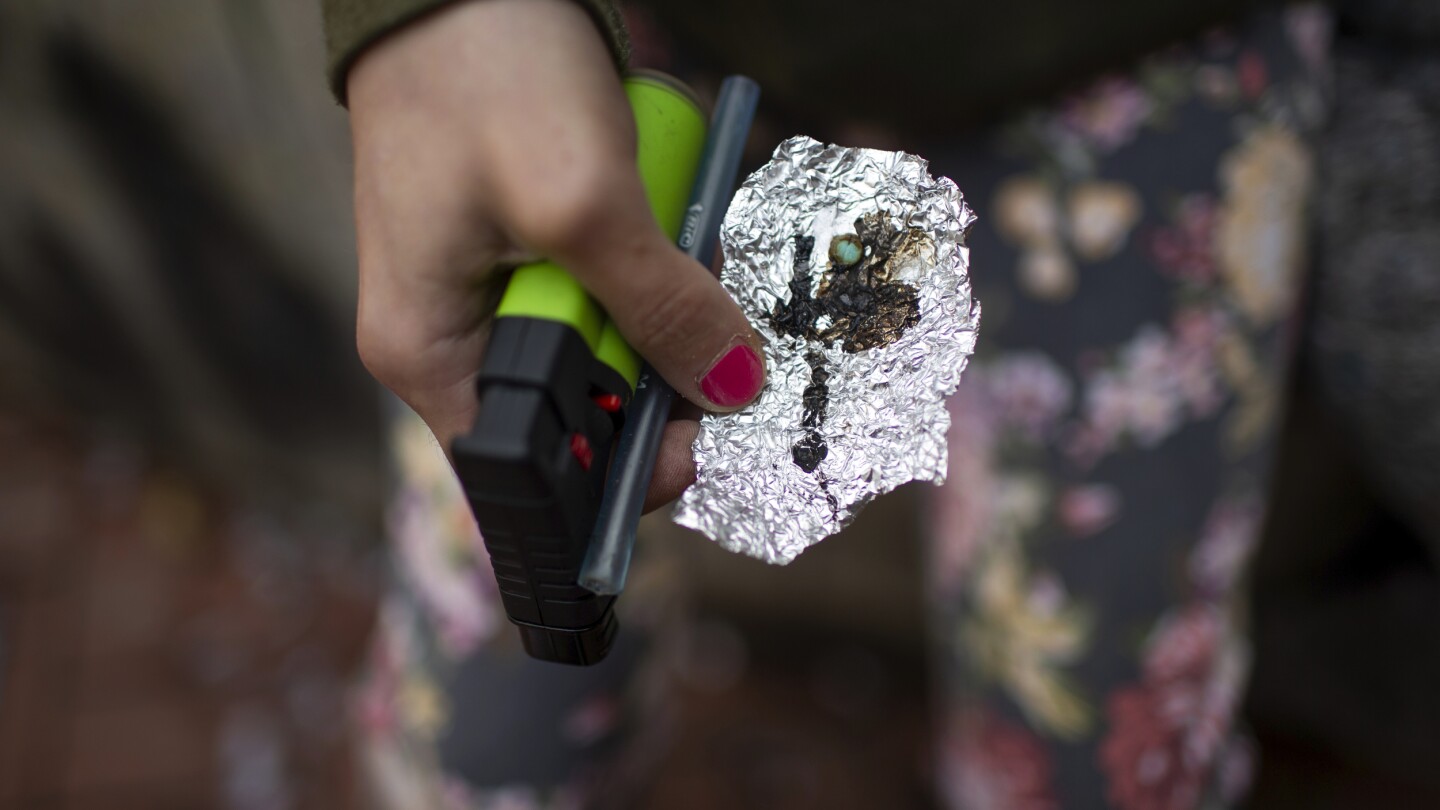Oregon’s first-in-the-nation law that decriminalized the possession of small amounts of heroin, cocaine and other illicit drugs in favor of an emphasis on addiction treatment is facing strong headwinds in the progressive state after an explosion of public drug use fueled by the proliferation of fentanyl and a surge in deaths from opioids, including those of children.
“The inability for people to live their day-to-day life without encountering open-air drug use is so pressing on urban folks’ minds,” said John Horvick, vice president of polling firm DHM Research. “That has very much changed people’s perspective about what they think Measure 110 is.”
When the law was approved by 58% of Oregon voters three years ago, supporters championed Measure 110 as a revolutionary approach that would transform addiction by minimizing penalties for drug use and investing instead in recovery.
But even top Democratic lawmakers who backed the law, which will likely dominate the upcoming legislative session, say they’re now open to revisiting it after the biggest increase in synthetic opioid deaths among states that have reported their numbers.



Making treatment optional (unlike Portugal) has been the big disaster here.
16,000 people ticketed under measure 110, less than 1% actively seeking treatment.
https://www.oregonlive.com/health/2022/09/oregons-drug-decriminalization-effort-sends-less-than-1-of-people-to-treatment.html
Meanwhile, drug use is exploding, overdoses are exploding, related thefts and crime are exploding…
https://oregoncapitalchronicle.com/2022/02/07/oregon-has-worst-drug-addiction-problem-in-the-nation-report-shows/
https://www.kgw.com/article/news/local/the-story/portland-downtown-firefighter-overdose-calls-narcan-deaths/283-a37b7402-c199-40ce-a120-bb6aec149365
"In June alone, firefighters from Station 1 responded to 300 overdoses.
Portland police data shows that back in 2020 nearly 90 people died from overdoses. The number jumped to 135 in 2021, then to 159 in all of 2022. So far this year there have been 151 deaths, all in less than seven months. Police expect that number to be around 300 by year’s end."
110 continues to be an utter failure.
And yet recent studies show overdoses have not gone up as a result, and Fentanyl is a growing problem in all US cities. https://www.opb.org/article/2023/09/27/oregon-drug-decriminalization-measure-110-overdose-deaths/
Deaths have not, because the fire department is responding with narcan hundreds of times a month.
All your data posted above apart from a single anecdote from a firefighter are from before this law even passed at the end of 2020. Seems like you’re arguing the old way wasn’t working.
“In June alone, firefighters from Station 1 responded to 300 overdoses.”
That’s this year.
We’ve had as many as 8 in a single event:
https://www.kgw.com/article/news/local/portland-drug-overdoses/283-78be019c-cef8-4c73-b2e8-24fd69fd9308
People are probably more likely to call for their help if they don’t have to fear being thrown in jail.
You can’t force treatment on someone who doesn’t want help and expect results. Just like throwing them in jail until they’re sober doesn’t stop them from using as soon as they get released.
Not ruining people’s lives further with jail and criminal records for personal use is better than what we were doing before, even if it’s not perfect.
Addicts won’t volunteer for help, that’s part of the addiction.
Rehab only works if the person wants to get clean. Otherwise it’s just incarceration. There needs to be more support for those that want to get clean, but decriminalizing drugs also has to be done so that they can feel safe to seek treatment without fear of punishment.
We are trying decriminalization, it’s not working.
The reason it works in Portugal is a) treatment is not optional and b) Nationalized health care.
Absent those two things, decriminalization is a disaster.
Treatment isn’t mandatory in Portugal. Rather, they expanded treatment services, increased point for positive intervention and interactions with healthcare provider and social workers, and focused on harm reduction.
Learn about the practices and not the misinformation. You can read more in the wikipedia entry under regulations.
We do sometimes. The point is to make sure the help is there if and when we decide to.
It’s crass and probably juvenile but honestly just let them filter themselves out.